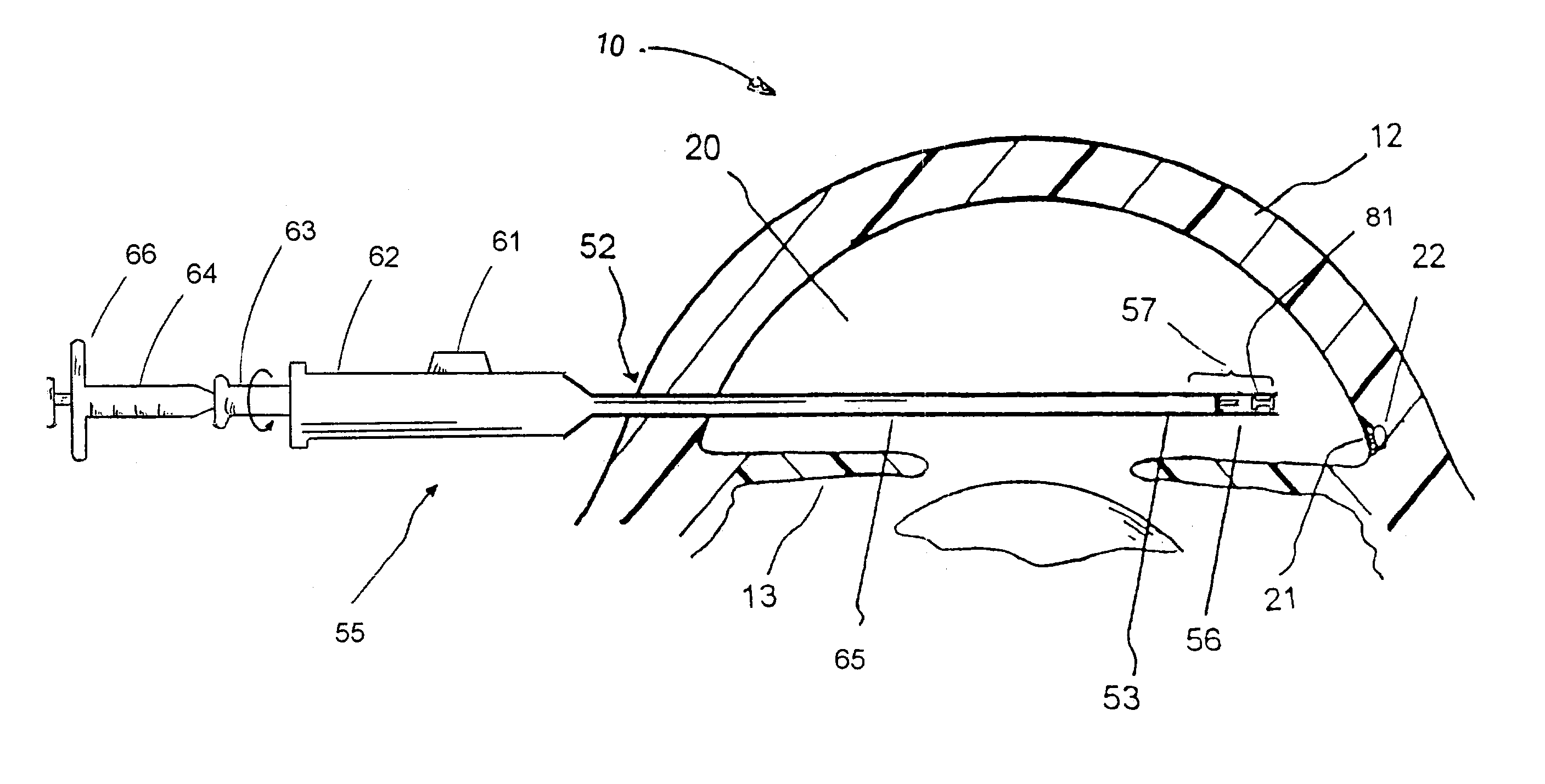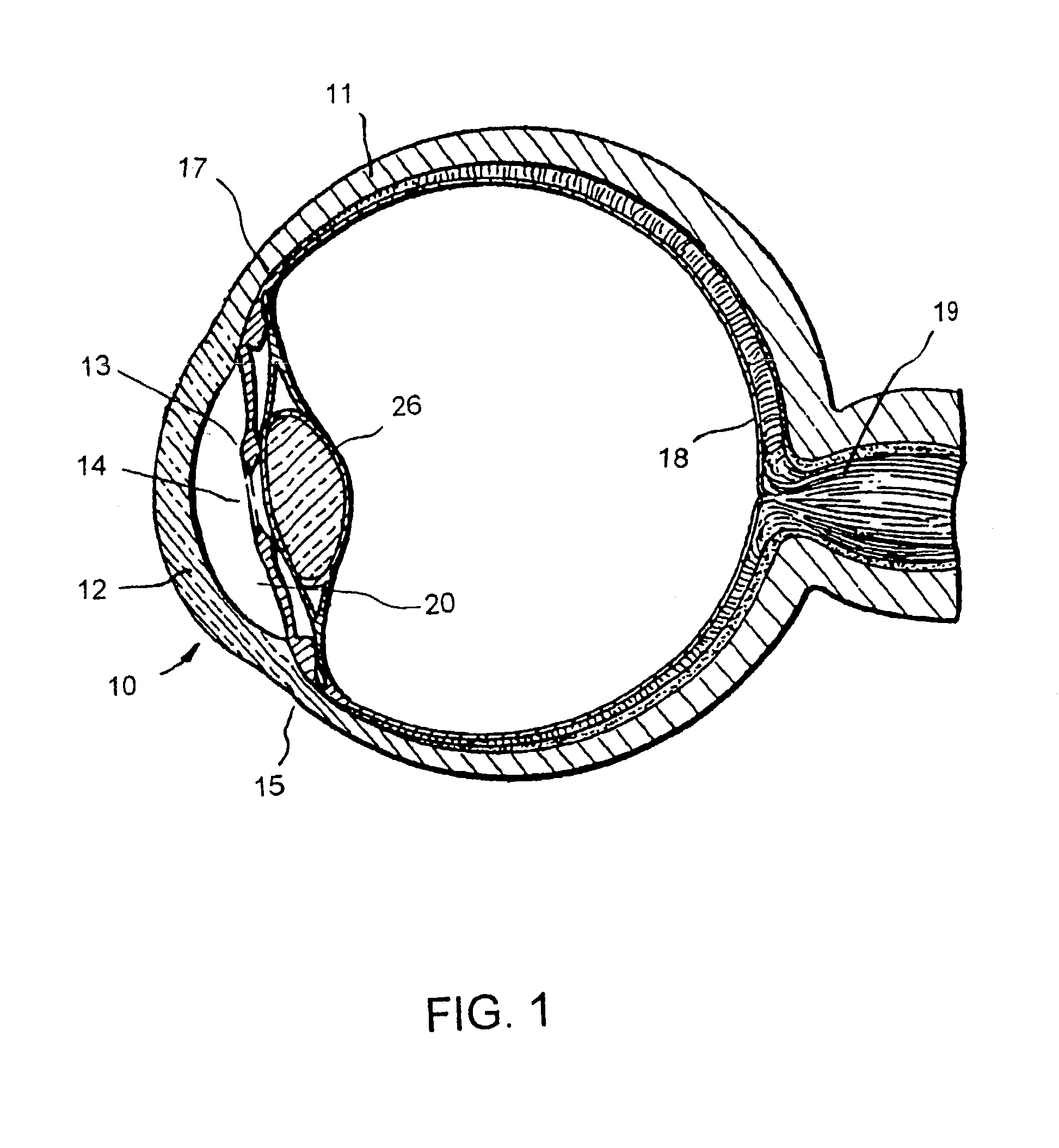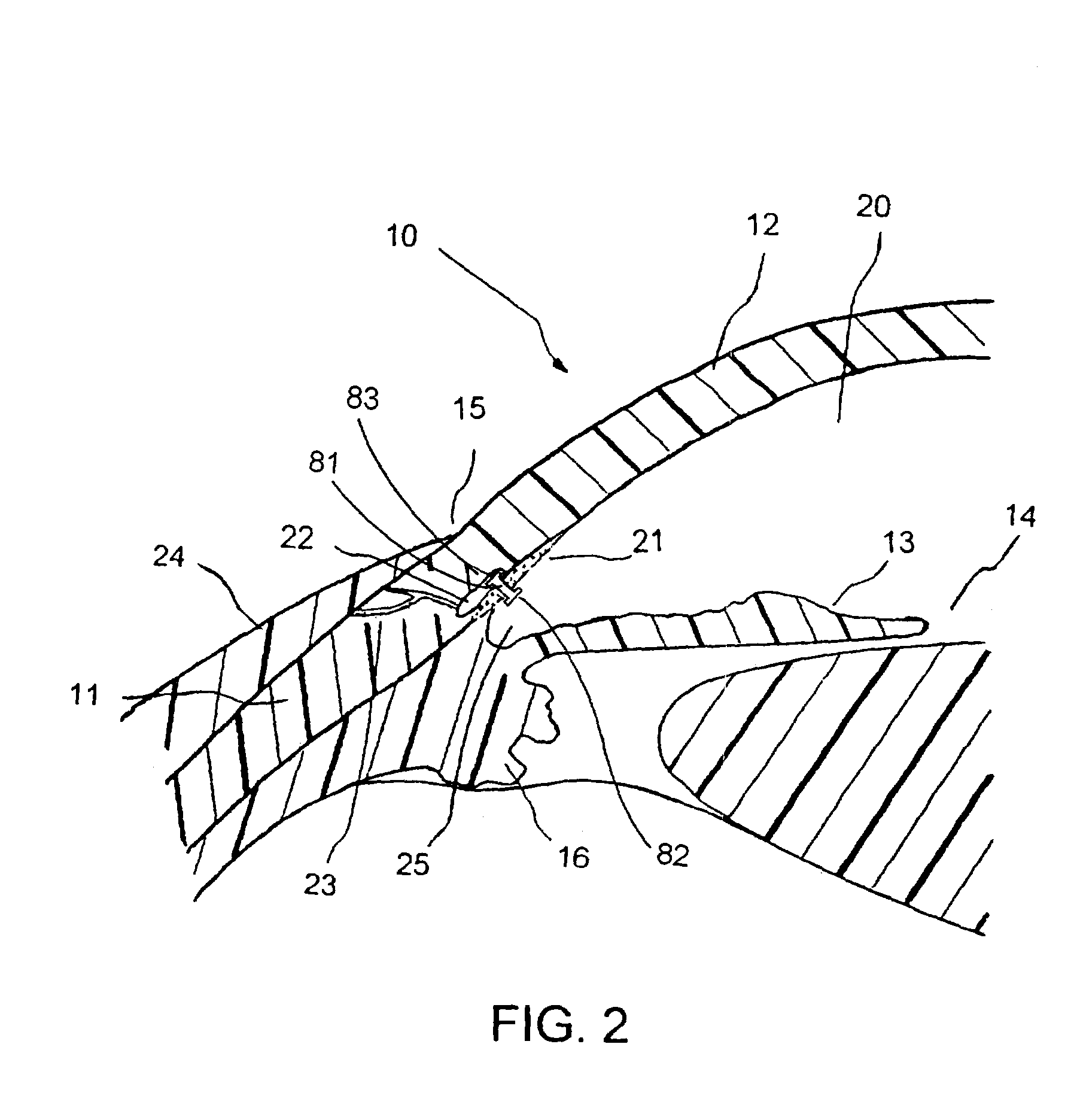Fluid infusion methods for glaucoma treatment
a glaucoma and fluoride technology, applied in the field of animal eye intraocular pressure reduction, can solve the problems of affecting the treatment effect of glaucoma drugs, patients may suffer substantial blindness if untreated, drug therapies for glaucoma are sometimes associated with significant side effects, etc., to improve the treatment of intraocular pressure and reduce the effect of inhibiting or slowing down the effects of glaucoma
- Summary
- Abstract
- Description
- Claims
- Application Information
AI Technical Summary
Benefits of technology
Problems solved by technology
Method used
Image
Examples
Embodiment Construction
[0048]The preferred embodiments of the present invention described below relate particularly to surgical and therapeutic treatment of glaucoma through reduction of intraocular pressure. While the description sets forth various embodiment specific details, it will be appreciated that the description is illustrative only and should not be construed in any way as limiting the invention. Furthermore, various applications of the invention, and modifications thereto, which may occur to those who are skilled in the art, are also encompassed by the general concepts described below.
[0049]FIG. 1 is a cross-sectional view of an eye 10, while FIG. 2 is a close-up view showing the relative anatomical locations of a trabecular meshwork 21, an anterior chamber 20, and a Schlemm's canal 22. A sclera 11 is a thick collagenous tissue that covers the entire eye 10 except a portion that is covered by a cornea 12. The cornea 12 is a thin transparent tissue that focuses and transmits light into the eye a...
PUM
 Login to View More
Login to View More Abstract
Description
Claims
Application Information
 Login to View More
Login to View More - R&D
- Intellectual Property
- Life Sciences
- Materials
- Tech Scout
- Unparalleled Data Quality
- Higher Quality Content
- 60% Fewer Hallucinations
Browse by: Latest US Patents, China's latest patents, Technical Efficacy Thesaurus, Application Domain, Technology Topic, Popular Technical Reports.
© 2025 PatSnap. All rights reserved.Legal|Privacy policy|Modern Slavery Act Transparency Statement|Sitemap|About US| Contact US: help@patsnap.com



